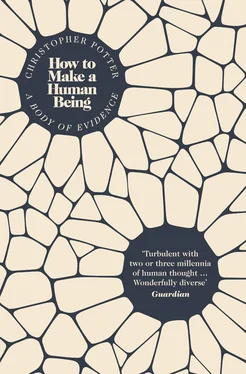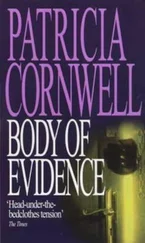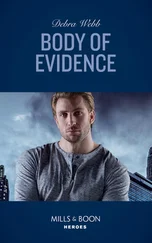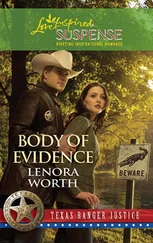Marilynne Robinson, Absence of Mind
17 | If aliens do not exist, the whole question of what kind of reality science describes is called into question. So long as aliens do not exist, what we are as humans in the universe remains an open question. So long as aliens do not exist, human beings are the aliens in the scientific woodpile. 2
18 | There is nothing inevitable about the way the scientific method has developed on earth. Nor is it inevitable that human beings should have stumbled on the scientific method at all. Many civilisations have come and gone with very different cosmologies. And if not inevitable here, there may be many other worlds where there is sentient life but no scientific understanding. Presumably there are cosmologies out there, as there have been here on earth, that come at the universe from quite a different perspective. Why should other life forms care about intelligence most of all? They may have discovered other motors of the universe. Scientific progress is directly related to our ability to imagine what alien life might be. 3
Our conceptual model of space and time has proven to be extremely successful – to such an extent that we may even find it difficult to imagine other ways of organising our thoughts and experience – but it isn’t logically inevitable.
Marilynne Robinson, novelist and essayist
[Theories] about the nature of the world become frameworks within which we live. And so they constrain what we think is possible, what we think is real.
Max Velmans, professor of psychology
19 | Scientific theories are frameworks that attempt to contain the world. But these frameworks are never more than detailed models, and a model is not the thing itself. Any knowledge about something is not the thing itself either. The only complete model of the universe would be the universe.
There is nothing more deceptive than an obvious fact.
Sir Arthur Conan Doyle (1859–1930), ‘The Boscombe Valley Mystery’
20 | Scientific facts are attached to theories that are part of a methodology that continually changes the limits within which they can be regarded as true. Facts are always embedded in theory, and theories come and go. There are no facts without theories. What we take to be facts may not be facts for other intelligent, questioning life forms. We can know the facts, but why they mean anything is another matter.
21 | It is far from clear that there are universal laws, 4but the pursuit of them has resulted in what we call progress, the outward and visible evidence of which is the material world we live in.
22 | The scientific fundamentalist takes home with him his belief that laws of nature actually exist. The more open-minded scientist understands that science is a kind of game whose rules only need apply in the laboratory or at the desk.
23 | Science is a mode of enquiry, not the last word. There are different world views, and they do not have to be commensurate, or agree with each other. And you don’t have to say one is better than another in all domains. But clearly if you want to build a rocket you will turn to physics, not theology. 5
And why, after all, may not the world be so complex as to consist of many interpenetrating spheres of reality, which we can then approach … by using different conceptions and assuming different attitudes.
William James (1842–1910), The Varieties of Religious Experience
24 | There are new theories to come that are beyond the reach of current technologies and of our current imaginations. In order to make progress sometimes a technological leap will come first, as it did when the telescope turned from plaything into scientific measuring instrument. Sometimes experiment comes last of all, as it did when Einstein re-imagined gravity as the geometry of space-time. He spent ten years working out the mathematics, leaving it to others to prove by experiment that gravity was indeed how he conceived it to be. When Einstein was asked what his response would be if experiment were to prove his theory false, he said he would feel sorry for the dear Lord.
25 | Experiments are generally hard to perform and require determination. No one would perform an experiment without already having some idea of what they are looking for.
Every brilliant experiment, like every great work of art, begins with an act of the imagination.
Jonah Lehrer, writer
26 | For there to be progress in science there has to be some kind of understanding that comes in advance of the finding out: intuition. The history of science is necessarily full of instances in which insight comes first, ahead of proof in observation and theory. Where does, where can that insight come from? There must be various conduits of the truth if imagination sometimes gets there first.
In science the leap of imagination must be of the right kind and not too great a leap. Mediums and other sensitives also claim the ability to see ahead of the material evidence, but their methods fail when exposed to scientific, repetitive investigation. Their evidence is personal and anecdotal, not public and repeatable as science demands.
27 | On the radio I hear the announcer describe the discovery of new planetary system as ‘a rather wonderful poetic idea’. And why not?
28 | In a purely material world the immaterial is what we don’t yet understand materially; a dwindling pile in the to-do basket of science. If we wait too long the ink will have faded and the mystery will have become illegible. How long we are prepared to wait for material answers to material questions tests our faith.
We call the boat back in – Come in, number 87, your time’s up – only to find that the boat is too far out, and anyway, if we but knew it, the boat long ago rotted away and sank without trace.
29 | We don’t know what Nature is. There is that sifted-out part of Nature we call the material world, that ongoing conversation between science and the world, and then there is the world itself, in the largest sense, in which we are embedded. Most of us, most of the time, confuse the material world with the real world, whatever that is.
The scientific method sieves out the material world. The question is left open whether or not there will be anything left in the sieve afterwards, or indeed, if there is an afterwards. It seems increasingly likely that science may at best describe its own limitations, and not ‘everything’, as is sometimes predicted by its fundamentalists.
‘Freddy, 6I’m told that there are left-overs in the larder. Have you any idea what to do with left-overs?’
‘You don’t have to do anything with them. They’re left over from whatever was done to them before.’
His father smiled and sighed.
Penelope Fitzgerald, The Gate of Angels
30 | Materialism describes a world made out of logic and things that move. If it cannot be measured by a clock and a ruler, it lies outside scientific enquiry. That the whole world is capable of being measured requires faith, and there are days when my faith falters.
Конец ознакомительного фрагмента.
Текст предоставлен ООО «ЛитРес».
Прочитайте эту книгу целиком, купив полную легальную версию на ЛитРес.
Безопасно оплатить книгу можно банковской картой Visa, MasterCard, Maestro, со счета мобильного телефона, с платежного терминала, в салоне МТС или Связной, через PayPal, WebMoney, Яндекс.Деньги, QIWI Кошелек, бонусными картами или другим удобным Вам способом.












